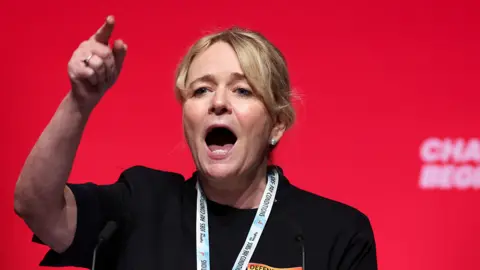The ongoing trash collection strike in Birmingham, which has seen refuse workers walking off the job amidst critical negotiations, has complicated the city’s waste management situation. The union representing these workers, Unite, has publicly criticized the Birmingham City Council for failing to reach a satisfactory agreement to end the strike, which commenced on March 11, following intermittent walkouts.
This strike stems from proposed changes that could affect worker roles and lead to significant pay cuts, potentially costing employees around £8,000 annually. Unite has accused both the city council and government-appointed commissioners, who have overseen the council’s operations since it faced financial difficulties, of obstructing progress toward a resolution. The union’s spokesperson highlighted the lack of action from the commissioners appointed by the government, who have a critical role in managing the council’s affairs since its effective bankruptcy.
Despite assertions from Birmingham City Council that they are dedicated to resolving the dispute, they have not yet made a specific pay offer. The union’s general secretary, Sharon Graham, has been vocal in her criticism of the council’s negotiation tactics, characterizing them as chaotic and urging council leader John Cotton to engage directly in discussions aimed at settling the matter. Graham emphasized that until the core issue of pay reductions is adequately addressed, the strike will continue, putting further pressure on the local government to find a viable solution.
In recent developments, since early May the dispute has been under discussion facilitated by the conciliation service Acas, yet negotiations have not yielded a promising outcome. Unite’s latest communique reflects frustration over the council’s failure to meet the previously set deadlines for formalizing an offer, thereby questioning the sincerity of any proposed changes.
Amidst the rising heap of waste piling up on Birmingham’s streets, which once reached an estimated 21,000 tonnes, the city council has previously defended its evaluation process as fair and transparent. City officials maintain that their efforts are geared towards crafting a revised offer to end the strike without compromising the council’s financial integrity. Additionally, they defended the role of the appointed commissioners, asserting their full support for finding a resolution.
The Ministry of Housing, Communities and Local Government has also weighed in on the matter, urging the union to suspend strikes and calling for both parties to come to an agreement that reflects fairness and reasonability. The situation has created a tense atmosphere not only among the striking workers and council employees but also within the community, with some residents having experienced significant disruptions to refuse collection services.
Notably, public support for the striking workers has been evident, as demonstrated by protest actions during official events, including disturbances at the election of Birmingham’s new Lord Mayor, Zafar Iqbal. This display of discontent illustrates the solidarity felt by many in the community who oppose the proposed cuts and stand in support of the workers’ rights.
As the strike approaches its eleventh week, it remains pivotal for both the union and the city council to prioritize reaching an agreement that can satisfy the financial concerns of the workers while also considering the broader implications for municipal management. The eyes of the community, and indeed, the entire region, are vigilantly focused on the developments arising from this critical labor dispute and the effectiveness of the negotiating strategies employed by both parties involved.



